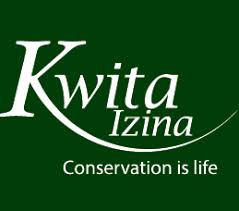GEOGRAPHY
Rwanda is a landlocked republic in Equatorial Africa, situated on the eastern rim of the Albertine Rift, a western arm of the Great Rift Valley, on the watershed between Africa’s two largest river systems: the Nile and the Congo. Much of the country’s 26,338 km2 is impressively mountainous, the highest peak being Karisimbi (4,507m) in the volcanic Virunga chain protected by the Volcanoes National Park. The largest body of water is Lake Kivu, but there are other numerous lakes around the country, notably Burera, Ruhondo, Muhazi and Mugesera, some of which have erratic shapes following the contours of the steep mountains that enclose them.
You can download the map of Rwanda here
ECONOMY
Primarily a subsistence agriculture economy, Rwanda nonetheless produces for export some of the finest tea and coffee in the world. Other industries include sugar, fishing and flowers for export. Details…
MONEY:
The unit of currency is the Rwanda franc. The US dollar is the hard currency of preference. Master and Visa cards are accepted at the major hotels in the country.
GETTING THERE
All International flights arriving in Kigali are with SN Brussels, Kenya Airways Ethiopian Airlines, Air Burundi and Rwandair Express.All international flights arrive at Kigali International Airport,10 Km from central Kigali There are two flights a day from Nairobi, three per week direct from Brussels and two per week from Johannesburg
LANGUAGE:
In addition to the indigenous language of Kinyarwanda, French and English are official languages. French is widely spoken throughout the country. In the capital and other tourist centres, many people speak English.
PASSPORT AND VISAS
A valid passport is mandatory. Visas, required by all visitors except nationals of the USA, UK, Germany, Canada, Uganda, Tanzania, Kenya, Burundi, Democratic Republic of Congo, Sweden, Mauritius, South Africa and Hong Kong, cost USD 60 and can be bought upon arrival.
To apply for a visa online click here
WHEN TO VISIT
Rwanda can be visited throughout the year. Gorilla trekking and other forest walks are less demanding during the drier months. The European winter is the best time for birds, as Palaearctic migrants supplement resident species.
WHAT TO WEAR
Dress codes are informal. Daytime temperatures are generally warm, so bring lots of light clothing, supplemented by light sweaters for the cool evenings and heavier clothing for the Volcanoes Park and Nyungwe. When tracking gorillas, wear sturdier clothing to protect against stinging nettles, and solid walking shoes. A hat and sunglasses provide protection against the sun, and a waterproof jacket may come in handy in the moist mountains.
COMMUNICATIONS
Rwanda has an excellent cell phone network covering almost the entire country. International phone calls can be made easily. Appropriate SIM cards for the network are readily available everywhere, even in remote towns, and cell phones can be purchased or rented from major shops in Kigali. Most towns of any size have several Internet cafes and computer centres.
GETTING AROUND
Rwanda has possibly the best roads in East Africa. Most visitors who have booked through a tour company will be provided with good private vehicles, usually 4-wheel drive. All of the major centres are connected with local and luxury bus services. Air charter services are available anywhere in the country.
GORILLA PERMITS
To visit the mountain gorillas you have to purchase Gorilla Permits can be arranged by a travel operator, or can be purchased directly through the Rwanda Development Board /Tourism and Conservation(RDB/T&C;) / The Rwanda Office of Tourism and National Parks, at the headquarters in Kigali, or at their office in Musanze.
SAFETY AND HEALTH
A certificate of yellow-fever vaccination is required. Much of Rwanda lies at too high an elevation for malaria to be a major concern, but the disease is present and prophylactic drugs are strongly recommended. It is advisable not to drink tap water. Bottled mineral water can be bought in all towns. Hospitals are located in all major towns.
SEASONS AND CLIMATE
A combination of tropical location and high altitude ensures that most of Rwanda has a temperate year-round climate. Temperatures rarely stray above 30 degrees Celsius by day or below 15 degrees Celsius at night throughout the year. The exceptions are the chilly upper slopes of the Virunga Mountains, and the hot low-lying Tanzania border area protected in Akagera National Park. Throughout the country, seasonal variations in temperature are relatively insignificant. Most parts of the country receive in excess of 1,000mm of precipitation annually, with the driest months being July to September and the wettest February to May.

